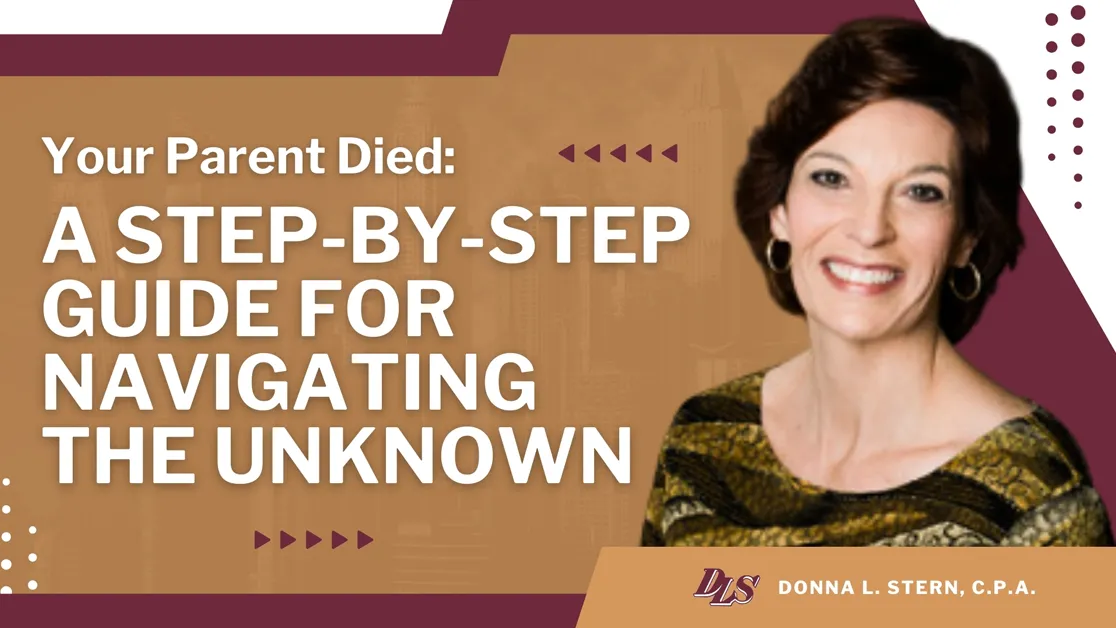There’s a good reason why trust accounting is often described as “simple, but not easy.” The rules are out there, the forms are available, and there’s no shortage of online advice. But for trustees in Orange County, especially those overseeing high-value trusts, the do-it-yourself route can quietly become a ticking time bomb.
At Donna L. Stern, C.P.A APC, we’ve seen this pattern more times than we can count: a well-meaning trustee tries to keep things “in house,” only to find themselves stuck in a complicated mess.
So let’s talk about why cutting corners with trust accounting isn’t saving you anything—and how a professional CPA can help protect not just your finances, but your reputation.
What Is Trust Accounting, Really?
If you’re reading this, you probably already know that trust accounting isn’t just a spreadsheet with a few notes. It’s a formal, legally required report detailing every financial move you make as a trustee.
A trust accounting typically includes:
- Beginning trust balance
- Itemized income (rent, interest, dividends, etc.)
- Disbursements (bills, distributions, taxes)
- Gains and losses on investments
- Ending trust balance
- Supporting documents (bank statements, receipts, etc.)
- And…potentially change of form assets
In California, the Probate Code outlines very specific rules around how this is done and when. For most trustees, that means providing an accounting annually, upon request, and when the trust terminates.
Miss something? That could open the door for more challenges than an awkward holiday get-together.
The Myth of “It’s Just Numbers”
Here’s where a lot of people get tripped up.
They assume trust accounting is just a fancier version of managing a personal budget or business books. After all, if you’ve balanced a checkbook or handled QuickBooks, how hard can it be?
The reality: trust accounting exists in its own world. It’s not just about “keeping track”—it’s about complying with specific standards that are enforced by the courts. And they don’t care how good your spreadsheet looks if it doesn’t follow the rules.
This is where the trouble begins for many DIY trustees.
Common DIY Mistakes We See
If you’re handling a trust of any size, even a small mistake can have major consequences. Some of the most common issues we encounter include:
-
Commingling Funds
This is when personal and trust funds are mixed together—even temporarily. It makes the accounting even more complicated and can rack up more legal fees and accounting fees unwinding what was done.
-
Improper Disbursements
Paying for things that aren’t allowed under the trust’s terms or not documenting them properly. Even if your intentions are good, this looks bad.
-
Missed Deadlines
California law requires timely accountings. Waiting until the last minute or ignoring requests from beneficiaries is an open invitation for legal trouble.
-
Lack of Documentation
You need to back up every entry with records.
-
Wrong Accounting Format
There’s a specific way trust accounting should be presented in California, governed by the California Probate Code. Using the wrong format could get your report rejected outright.
The Real Cost of DIY
Let’s put it plainly: the idea of “saving money” by handling trust accounting on your own only works if everything goes perfectly. One wrong turn, and it can cost you thousands.
Here’s a common scenario we see:
- A trustee tries to DIY an accounting for a trust.
- Misses some reporting requirements, mixes up a few distributions.
- One beneficiary consults a lawyer after noticing inconsistencies.
- The trustee is now facing scrutiny.
- A professional is finally brought in to fix what could have been done right the first time.
End result? The trustee ends up spending far more money fixing the problem than they would have if they had hired expert help at the start.
What a CPA Can Do That You Can’t Google
We’re not just here to run numbers. At Donna L. Stern, C.P.A, APC, we specialize in trust accounting and understand how California courts want to see your records.
Here’s what we bring to the table:
- Court-Ready Reports: We use the correct format, depending on your needs.
- Detailed Recordkeeping
- Deadline Management: We stay on top of timelines so you don’t have to.
- Collaboration with your legal council
Is Professional Trust Accounting Right for You?
Our services are designed for trustees handling significant assets—especially those who understand that financial responsibility comes with legal weight.
If you’re managing an estate of any size, a family trust with complex investments, or navigating difficult beneficiary dynamics, professional accounting isn’t a luxury—it’s a safeguard.
Final Thought: Protect More Than Just the Numbers
Being a trustee is more than a financial job—it’s an obligation. It involves money, yes, but it also involves trust in the literal sense. The people named in that trust are relying on you to handle things responsibly, accurately, and transparently.
If you’re thinking of going the DIY route, just know that trust accounting isn’t something you want to get “mostly right.” In this field, 95% correct isn’t good enough
Let us help you get it right from the start.
Need Expert Help With Trust Accounting in Orange County?
Contact Donna L. Stern, C.P.A, APC., today to schedule a consultation and ensure your trust is handled with precision and care.
Disclaimer
The content on this web site is for informational purposes only. Nothing on this website should be construed to be tax/accounting advice, and you should not act or refrain from acting on the basis of any content on this site without seeking appropriate tax/accounting advice regarding your particular situation, from a licensed Certified Public Accountant in your state. The content on this site is not guaranteed to be correct, complete, or up to date.
The office of Donna L. Stern CPA, APC. is in Orange County, California and is only licensed for tax/accounting services in California. Please be advised that Donna L. Stern CPA, APC. only provides tax/accounting services or advice pursuant to a written tax/accounting services agreement. The content on this website is not intended to, and does not, create a CPA-client relationship between you and Donna L. Stern CPA, APC., nor does our receipt of an email or other communication from you.
Some jurisdictions may consider this site to constitute tax/accounting advertising; accordingly, please be advised this is an advertisement. Hiring a Certified Public Accountant is an important decision that you should not make based solely on advertising or on our self-proclaimed expertise. Rather, you should make your own independent evaluation of any Certified Public Accountant who you are thinking about hiring.
Testimonials or endorsements do not constitute a guarantee, warranty or prediction regarding the outcome of your tax/accounting matter. The result portrayed in any testimonials or endorsements were dependent on the facts of that case, and the results will differ if based on different facts. Donna L. Stern CPA, APC. does not offer any guarantees with regard to the outcome of your matter. Prior results in other cases do not guarantee a similar outcome in your case.
IRS CIRCULAR 230 DISCLOSURE: To ensure compliance with requirements imposed by the IRS, we inform you that, to the extent this communication (or any attachment) addresses any tax matter, it was not written to be (and may not be) relied upon to (i) avoid tax-related penalties under the Internal Revenue Code, or (ii) promote, market or recommend to another party any transaction or matter addressed herein (or in any such attachment).
By submitting a form, calling us, or emailing us you consent to receive SMS messages in regards to appointment reminders, office directions, feedback requests, and other relevant communications. I understand that message and data rates may apply and that I can opt out at any time.









